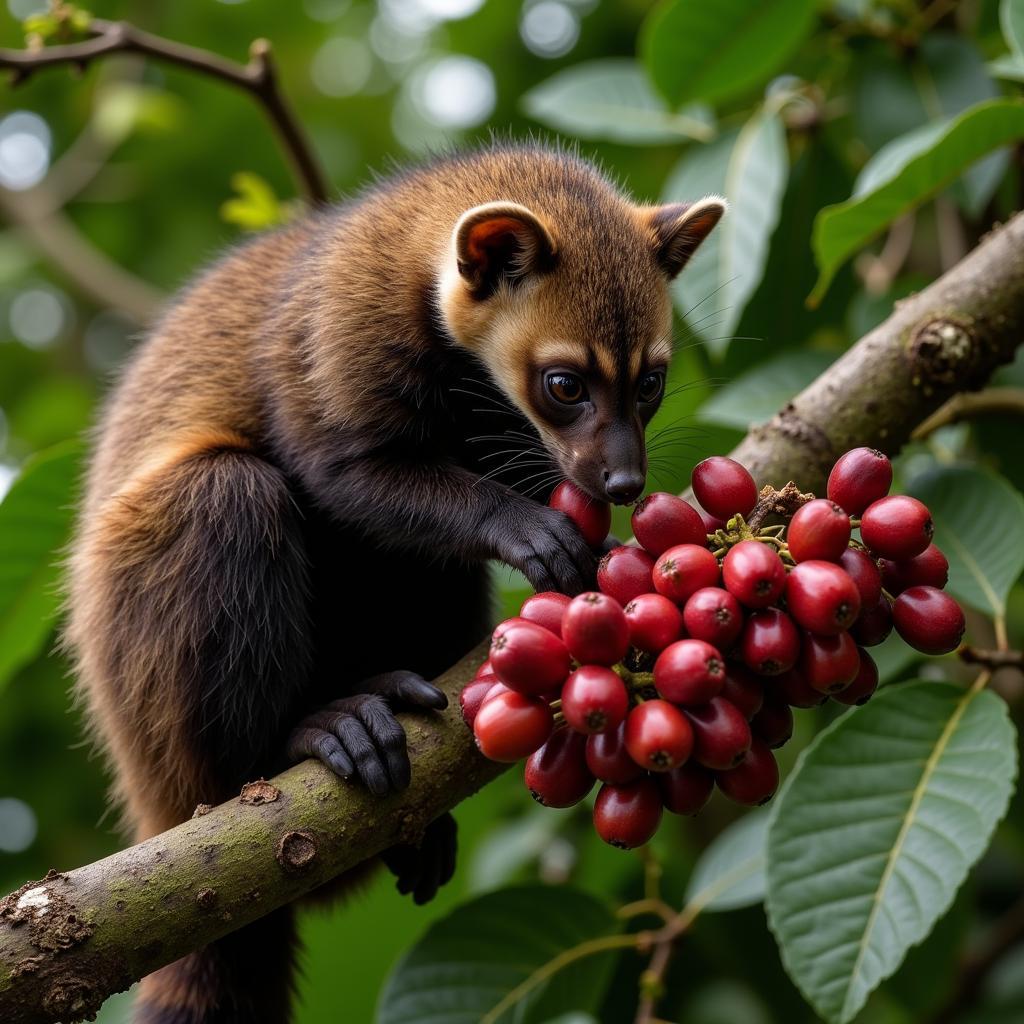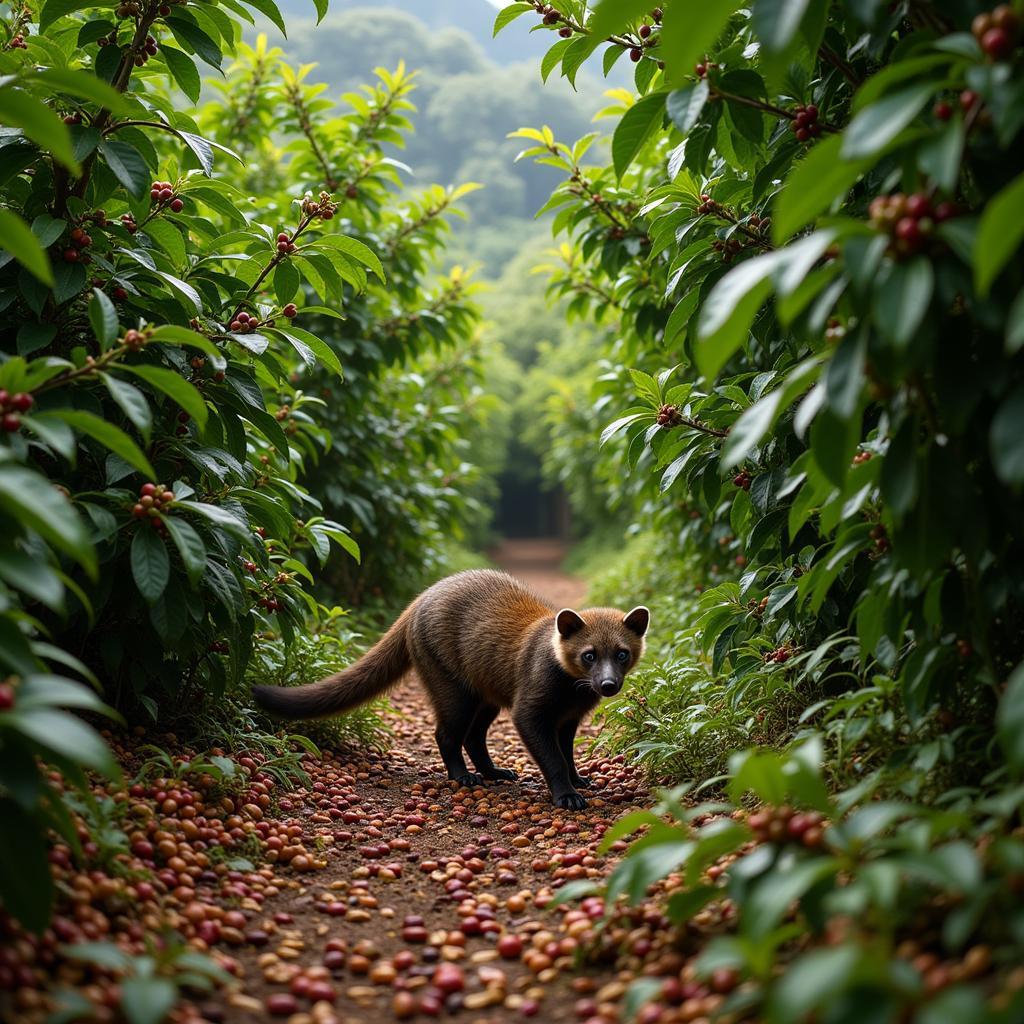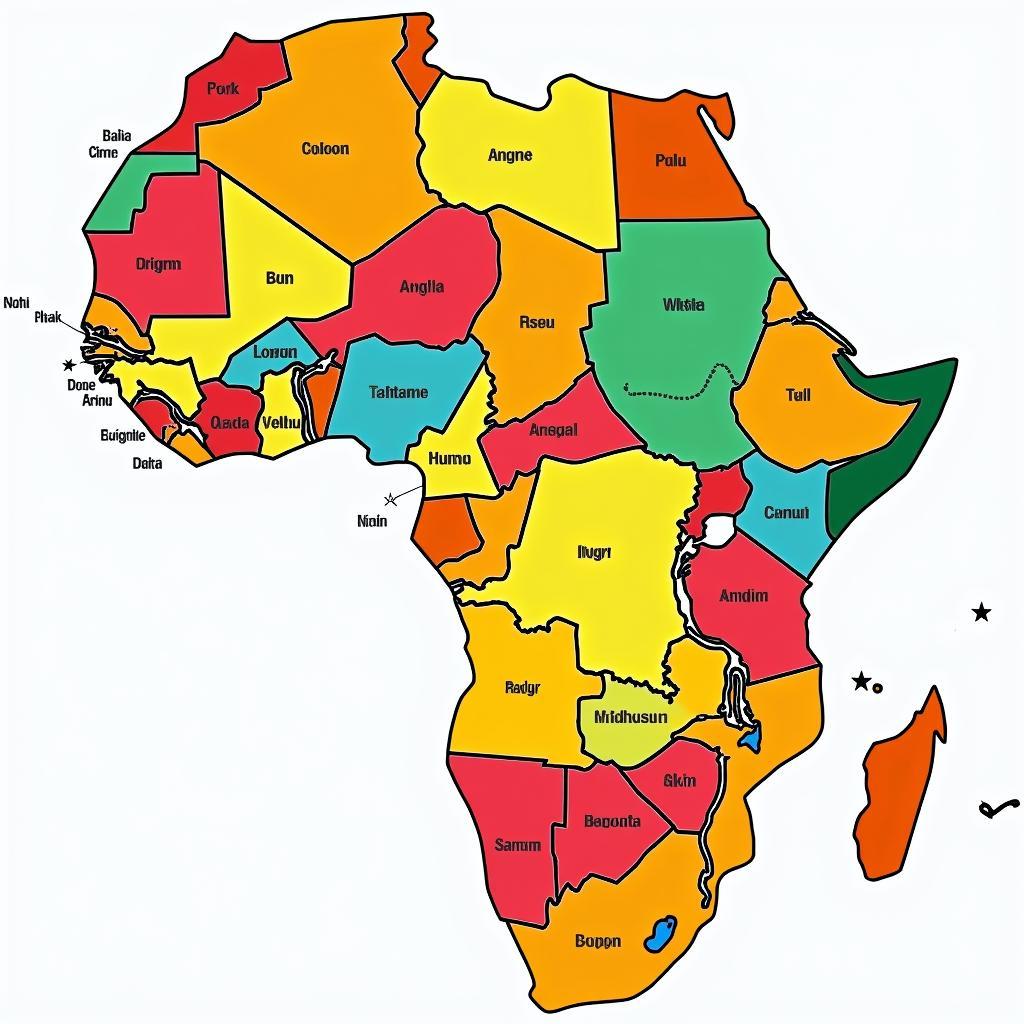Unveiling the Secrets of African Civet Coffee
African Civet Coffee, also known as Kopi Luwak, is shrouded in both mystique and controversy. This unique brew, derived from coffee beans partially digested by the African civet, boasts a distinctive flavor profile that has captivated coffee enthusiasts for centuries. But what exactly makes this coffee so special, and what ethical considerations should consumers be aware of? Let’s delve into the fascinating world of African civet coffee.
What is African Civet Coffee?
The journey of African civet coffee begins with the small, nocturnal mammal known as the African civet. These creatures, native to sub-Saharan Africa and Southeast Asia, have a particular fondness for ripe coffee cherries. They consume the cherries whole, digesting the outer pulp but leaving the inner beans intact. These beans are then excreted, collected, processed, and roasted, resulting in the final product – African civet coffee. african civet facts This process, it is believed, imparts a unique flavor to the beans due to the enzymes in the civet’s digestive system.
The Flavor Profile of Civet Coffee: Myth or Reality?
The flavor of African civet coffee is often described as smooth, earthy, and less bitter than traditional coffee, with hints of chocolate, caramel, and even a touch of fruitiness. Some attribute this distinctive taste to the fermentation process the beans undergo within the civet’s digestive tract. Others remain skeptical, arguing that the unique flavor is more a product of hype and the unusual processing method than any inherent quality of the beans themselves.
Is it Really Worth the Hype?
Many coffee connoisseurs swear by the smooth, complex flavors of civet coffee, while others find the taste overrated. Ultimately, the experience is subjective.
 African Civet Eating Coffee Cherries
African Civet Eating Coffee Cherries
The Ethical Dilemma of Civet Coffee Production
While the unique taste of African civet coffee may be enticing, the ethical implications of its production are a serious concern. Traditionally, civets were wild-sourced, often trapped and kept in inhumane conditions on coffee plantations solely for their coffee bean processing abilities. These caged civets are often force-fed coffee cherries, depriving them of a natural diet and causing significant stress and health problems.
Sustainable and Ethical Sourcing
Thankfully, there is a growing movement towards more ethical and sustainable civet coffee production. Some farms now allow civets to roam freely and forage naturally for coffee cherries, collecting the beans from their droppings without confining the animals. This method, while more expensive and less productive, ensures the well-being of the civets and aligns with principles of animal welfare.
 Free-Range Civet Coffee Plantation
Free-Range Civet Coffee Plantation
How to Identify Authentic and Ethically Sourced Civet Coffee
Finding genuinely ethical and authentic African civet coffee can be challenging. Look for certifications and labels that verify sustainable and humane practices. Ask questions about the sourcing of the beans and look for transparency from the seller. Be prepared to pay a premium price, as ethically sourced civet coffee typically commands a higher cost.
Ask the Right Questions
Don’t hesitate to ask retailers about the origins of their civet coffee and the conditions in which the civets are kept.
 Authentic African Civet Coffee Beans
Authentic African Civet Coffee Beans
Conclusion
African civet coffee offers a unique and intriguing experience for coffee lovers. However, it’s crucial to be mindful of the ethical considerations surrounding its production. By supporting sustainable and humane practices, consumers can enjoy this unusual brew while ensuring the well-being of these fascinating creatures. Choose ethically sourced African civet coffee and savor the experience responsibly.
FAQ
- What does African civet coffee taste like? It’s often described as smooth, earthy, and less bitter than regular coffee, with notes of chocolate, caramel, and fruit.
- How is civet coffee made? Civets eat coffee cherries, digest the pulp, and excrete the beans, which are then collected, processed, and roasted.
- Is civet coffee production ethical? Traditional methods often involve inhumane treatment of civets, but sustainable and ethical options are available.
- How can I find ethically sourced civet coffee? Look for certifications and transparency from sellers, and be prepared to pay a premium price.
- Is civet coffee expensive? Yes, especially ethically sourced civet coffee, due to the lower yield and higher production costs.
- Where is civet coffee produced? Primarily in Southeast Asia and some parts of Africa.
- Are there health concerns related to civet coffee? No specific health concerns are associated with civet coffee beyond those of regular coffee consumption.
Common Situations and Questions
-
Scenario: You are curious about trying civet coffee but unsure where to start.
-
Question: Where can I find reputable sellers of ethically sourced civet coffee?
-
Scenario: You have heard conflicting information about the taste of civet coffee.
-
Question: Are there different grades or qualities of civet coffee, and how do they affect the taste?
Further Exploration
For more information about the African civet, visit our page dedicated to african civet facts.
Need Help?
For any inquiries or assistance regarding African civet coffee, feel free to contact us: Phone: +255768904061, Email: kaka.mag@gmail.com, or visit us at Mbarali DC Mawindi, Kangaga, Tanzania. Our customer support team is available 24/7.

